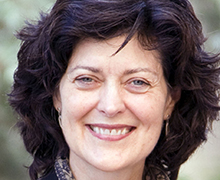Christianity and western diplomacy: Strange or obvious bedfellows?

Christianity and western diplomacy: Strange or obvious bedfellows?
- August 11, 2015
- Cecelia Lynch, political science professor, breaks it down in Border Crossings, the August issue of Diplomat Magazine
-----
The relationship between Christianity and diplomacy in the modern Western world is a very old and very important one, but it rarely gets the attention it deserves. Yet, if we dig underneath the secularist assumptions for international politics, we can easily see the degree to which religious and in particular Christian ethics, actors, and thought have always been and continue to be an integral part of diplomatic practices.
In order to understand contemporary diplomacy, it is useful to understand its roots
in a Christian history of conflicts between universalism and particularism, from the
early modern period through the creation of global organizations to the present, post-Cold
War era. This history also enables us to see how Christian actors – despite the fact
that they do not speak with one voice – continue to be influential as negotiators
and humanitarians in diplomacy today. Additionally, exposing the symbiotic relationship
between Christianity and diplomacy in the West also brings the fore how both Christian
actors and Western diplomats must increasingly take into account the ethics and practices
of other parts of the world to achieve goals of order and peace among states and peoples.
Read on, courtesy of Diplomat Magazine…
Cecelia Lynch is professor of political science and director of international studies and the Institute for International, Global and Regional Studies at the University of California, Irvine.
-----
Would you like to get more involved with the social sciences? Email us at communications@socsci.uci.edu to connect.
Share on:
Related News Items
- Careet RightLynch named International Studies Association's Religion and International Relations Distinguished Scholar
- Careet RightReady for takeoff
- Careet RightIs holy war brewing over former Chapman Law dean Eastman's 'persecution'?
- Careet RightUC Irvine political science faculty statement on the events of Jan. 6, 2021
- Careet RightHundreds of political scientists call for removing Trump


